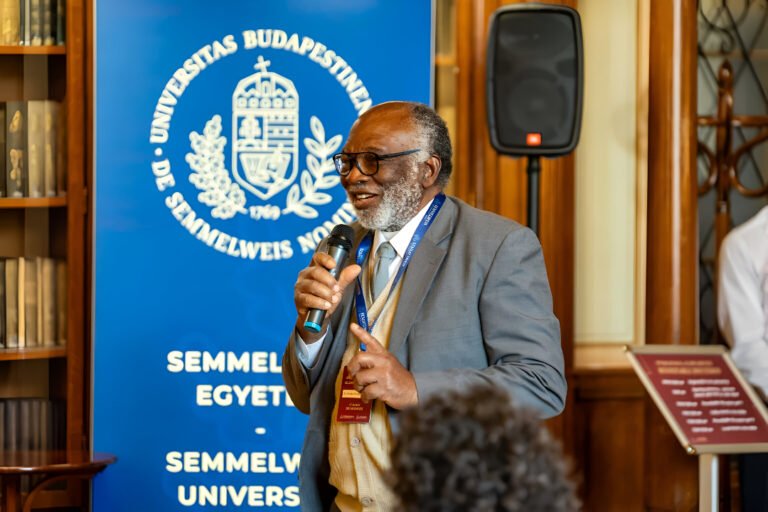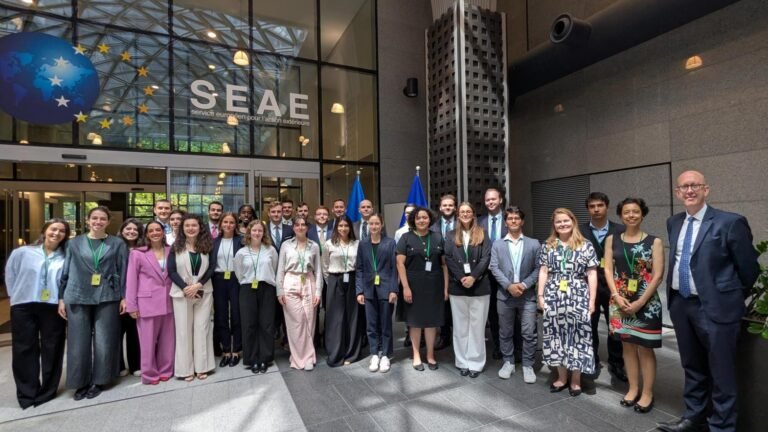
Innovation took center stage at Óbuda University as the John von Neumann Faculty of Informatics hosted the prestigious Health 2.0 Conference, gathering experts from across the healthcare and technology sectors to explore the future of digital medicine.
Dr. György Eigner, Dean of the Faculty, opened the event by emphasizing the university’s dedication to interdisciplinary development and technological progress. “The Health 2.0 Conference is a vital platform for collaboration among medical professionals, technologists, and decision-makers,” he said, highlighting the faculty’s strengths in AI-supported diagnostics, medical imaging, and data analytics.
Dr. Zsombor Zrubka, Director of the University’s Research and Innovation Center (EKIK), reinforced the message, noting that Óbuda University has long been a leader in health innovation. Projects in areas such as rehabilitation robotics and biosignal analysis are enabling breakthroughs in non-invasive diagnostics and real-time patient monitoring.
A key speaker at the event was Prof. Dr. Tamás Haidegger, head of the university’s Medical Robotics Research Group and CEO of Initium Venture Labs Zrt. He discussed the rapid rise of robot-assisted surgery, with over 30 million procedures performed globally and nine robotic systems already active in Hungarian healthcare. “The next challenge,” Prof. Haidegger warned, “is the level of autonomy we are willing to give to machines.”
The conference was praised for its independence and grassroots organization. The Hungarian Health 2.0 community, led by Gábor Gyarmati (CEO of Ripassa Kft.), has sustained its mission for over a decade without a commercial model, relying solely on volunteer contributions and partnerships—most notably with long-term supporter Richter Gedeon Plc.
In addition to lectures and discussions, the event spotlighted cutting-edge research projects. Among them, the MedLaBotX initiative—developed with Stanford University and the National University of Singapore—aims to create AI-powered medical robots that understand and adapt to real-world environments. Meanwhile, the Tamed Cancer project, under Rector Prof. Dr. Levente Kovács, focuses on mathematically personalized cancer therapy to reduce side effects and enhance patient outcomes.
A new strategic partnership with Bethesda Children’s Hospital was also announced, aiming to merge pediatric care with engineering innovation in AI, robotics, and informatics.
As Hungary and the global healthcare community push toward digitization, events like the Health 2.0 Conference mark critical milestones—where vision meets action, and innovation paves the way for a smarter, more responsive healthcare system.
Source : Óbuda University
WordMain #Health20 #DigitalHealth #MedicalRobotics #ÓbudaUniversity #SmartHealthcare #InnovationHU #StudentVoice #HungarianTech #MedTech #CampusNews #AIinHealthcare #BudapestEvents






